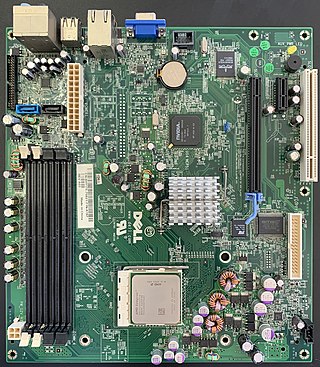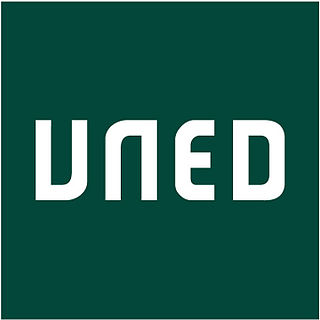A major contributor to this article appears to have a close connection with its subject.(June 2018) |
Industry-oriented education is an approach to education from an industry perspective.
A major contributor to this article appears to have a close connection with its subject.(June 2018) |
Industry-oriented education is an approach to education from an industry perspective.
Industry oriented education is an approach to learning from an industry perspective where traditional subjects such as maths, physics and science are taught in the context of application of that knowledge to product design, development and operation.
With traditional technical teaching methodologies in educational environments, the conventional pathway is to build the foundation learning through subject based teaching of maths, physics and science independently. Subjects based on the knowledge required for the discipline usually follow on from this. The problem with this traditional methodology of learning is that there is no close relationship with industry requirements. Students may well graduate with no industrial oriented learning experience prior to their first job.
It has been applied to vocational education. It was only offered to sub-degree education and industry training until 2004. Since 2004 Industry Oriented Education has been introduced to higher education as part of study for undergraduate degrees and Master's degrees.
As an example, the course of Electronics Technology in the Bachelor of Applied Technology is directly linked to industry and the focus is on an industrial product such as a Switch-mode power supply. The internal components form the topics for study: this includes the mechanical design for the enclosure, electronic design including the PCB (printed circuit board) and embedded software design. The focus for learning is product design, application and operation of electronic components and circuitry. The industrial product will be activated under simulated industry conditions where students will gain invaluable insight of design technology, operational procedure and programming techniques. All foundation skills can be achieved within these studies and the students are well prepared to develop further knowledge and skills required for their industry project required in their final year through cooperative education with industry. Mathematics is not taught here as an independent course of study, but totally integrated into the compulsory technical courses. As an example, the course of Electronics Technology taught in the Bachelor of Applied Technology uses fast Fourier transform series to explore the method of electromagnetic interference (EMI) in Switch-mode power supplies. Initially students will receive a demonstration and the product which is a commercial product, will be opened for internal investigation of the enclosure. The internal components form the topics for study: this includes the mechanical design for the enclosure, electronic design including the PCB (Printed Circuit Board) and embedded software design. The focus for learning is product design, application and operation of electronic components and circuitry.
An example in post-graduate program is a “bridging” technology course designed for the first year students in Master of Design program before they start their projects. It is to enable a Bachelor of Design graduate to entry this technology oriented program.

Computer engineering is a branch of electrical engineering that integrates several fields of electrical engineering, electronics engineering and computer science required to develop computer hardware and software. Computer engineering is referred to as Electrical and Computer engineering OR Computer Science and Engineering at some universities

An engineering technologist is a professional trained in certain aspects of development and implementation of a respective area of technology. An education in engineering technology concentrates more on application and less on theory than does an engineering education. Engineering technologists often assist engineers; but after years of experience, they can also become engineers. Like engineers, areas where engineering technologists can work include product design, fabrication, and testing. Engineering technologists sometimes rise to senior management positions in industry or become entrepreneurs.

The Open University of Sri Lanka is a national university in Sri Lanka. It is unique within the Sri Lankan national university system for being the only university to offer programs of study leading to certificate, diploma, degrees and postgraduate degrees up to PhD level through the Open and Distance Mode of Learning (ODL). The degrees awarded by the university are treated as equivalent to degrees awarded by any other Sri Lankan University under the preview of the University Grants Commission.
A Bachelor of Engineering or Bachelor of Science in Engineering (BSE) is an undergraduate academic degree awarded to a college graduate majoring in an engineering discipline at a higher education institution.
A Master of Engineering is a professional master's degree in the field of engineering.
Business education is a branch of education that involves teaching the skills and operations of the business industry. This field of education occurs at multiple levels, including secondary and higher education

Industrial arts is an educational program that features the fabrication of objects in wood or metal using a variety of hand, power, or machine tools. Industrial Arts are commonly referred to as Technology Education. It may include small engine repair and automobile maintenance, and all programs usually cover technical drawing as part of the curricula. As an educational term, industrial arts dates from 1904 when Charles R. Richards of Teachers College, Columbia University, New York suggested it to replace manual training.

The National Distance Education University is a distance learning and research university founded in 1972 and is the only university run by the government of Spain. The headquarters is located in Madrid, with campuses in all Spanish autonomous communities. There are 14 study centers and 3 exam points in 13 countries in Europe, the Americas and Africa. The University awards undergraduate and postgraduate degrees, as well as non-degree qualifications such as diplomas and certificates, or continuing education units.
The School of Engineering and Applied Science (SEAS) at the George Washington University in Washington, D.C. is a technical school which specializes in engineering, technology, communications, and transportation. The school is located on the main campus of the George Washington University and offers both undergraduate and graduate programs.
Industrial technology is the use of engineering and manufacturing technology to make production faster, simpler, and more efficient. The industrial technology field employs creative and technically proficient individuals who can help a company achieve efficient and profitable productivity.

Engineering education is the activity of teaching knowledge and principles to the professional practice of engineering. It includes an initial education (Dip.Engg.)and (B.Engg.) or (M.Engg.), and any advanced education and specializations that follow. Engineering education is typically accompanied by additional postgraduate examinations and supervised training as the requirements for a professional engineering license. The length of education, and training to qualify as a basic professional engineer, is typically five years, with 15–20 years for an engineer who takes responsibility for major projects.

FH JOANNEUM is one of the biggest universities of applied sciences (UAS) in Austria. It has about 5,000 students and about 750 employees. The main campus is located in Graz and there are two additional locations in Kapfenberg and Bad Gleichenberg. All three are situated in the province Styria in Austria. FH JOANNEUM offers almost 70 degree programs in a variety of areas including business, technology, design, media, architecture, health and social services. The programmes are practice-oriented, project-based and interdisciplinary.

The Centre for Development of Advanced Computing, Thiruvananthapuram (C-DAC[T]) is a branch of the Indian Centre for Development of Advanced Computing based in Thiruvananthapuram.
Former education and research institution in Lugano, Switzerland, part of Università della Svizzera italiana

The Metropolia University of Applied Sciences is a University of Applied Sciences in Finland. The university has four campuses, offering 93 degree programs in business, culture, healthcare and social services, and technology.

Industrial engineering is an engineering profession that is concerned with the optimization of complex processes, systems, or organizations by developing, improving and implementing integrated systems of people, money, knowledge, information and equipment. Industrial engineering is central to manufacturing operations.
The Faculty of Applied Sciences oversees four departments at the Wayamba University of Sri Lanka.
Bernd Bruegge is a German computer scientist, full professor at the Technische Universität München (TUM) and the head of the Chair for Applied Software Engineering. He is also an adjunct associate professor at Carnegie Mellon University (CMU) in Pittsburgh.
Industrial and production engineering (IPE) is an interdisciplinary engineering discipline that includes manufacturing technology, engineering sciences, management science, and optimization of complex processes, systems, or organizations. It is concerned with the understanding and application of engineering procedures in manufacturing processes and production methods. Industrial engineering dates back all the way to the industrial revolution, initiated in 1700s by Sir Adam Smith, Henry Ford, Eli Whitney, Frank Gilbreth and Lilian Gilbreth, Henry Gantt, F.W. Taylor, etc. After the 1970s, industrial and production engineering developed worldwide and started to widely use automation and robotics. Industrial and production engineering includes three areas: Mechanical engineering, industrial engineering, and management science.
Industrial artificial intelligence, or industrial AI, usually refers to the application of artificial intelligence to industry and business. Unlike general artificial intelligence which is a frontier research discipline to build computerized systems that perform tasks requiring human intelligence, industrial AI is more concerned with the application of such technologies to address industrial pain-points for customer value creation, productivity improvement, cost reduction, site optimization, predictive analysis and insight discovery.